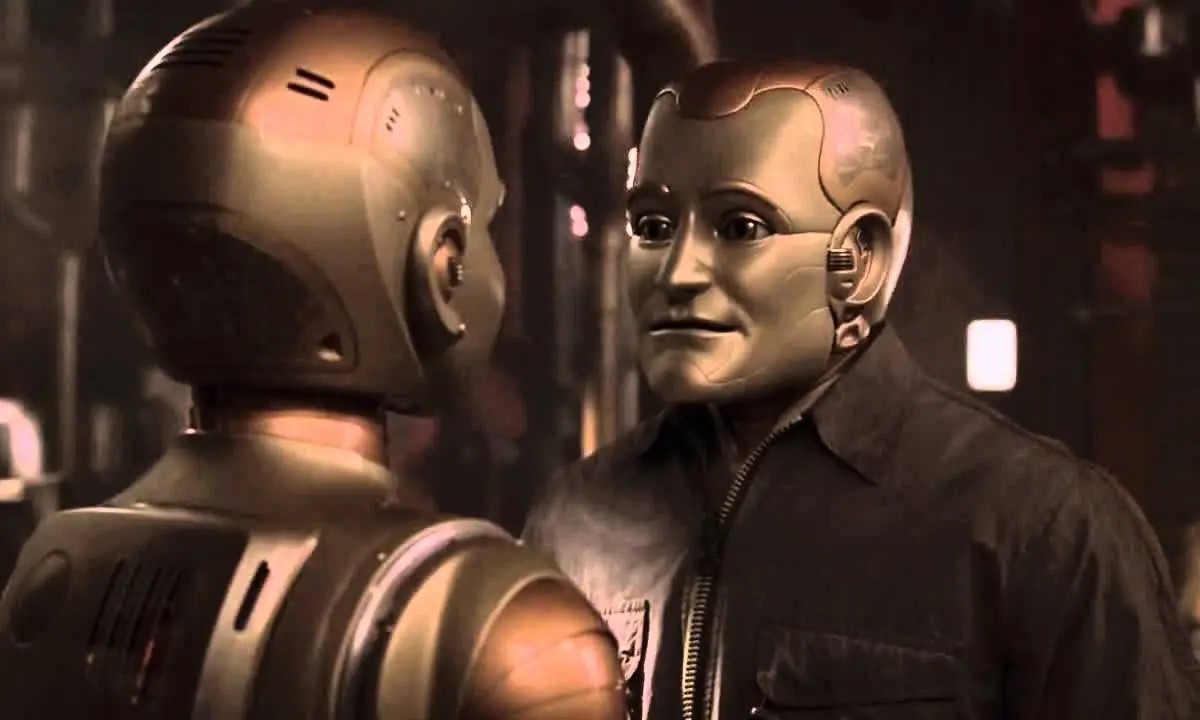Bicentennial Man (1999)

Released in 1999 and directed by Chris Columbus, Bicentennial Man is a thought-provoking science fiction film that delves into themes of humanity, technology, and the passage of time. Starring Robin Williams in a memorable and multifaceted role, the film is an adaptation of Isaac Asimov’s novella The Bicentennial Man. Through its engaging narrative, emotional depth, and exploration of profound philosophical questions, Bicentennial Man offers a compelling examination of what it means to be human in an increasingly technological world.
The film is set in a future where robots are commonplace and features Robin Williams as Andrew Martin, an android who is initially programmed to serve as a household servant for the Martin family. As the story unfolds, Andrew begins to exhibit traits that go beyond his programming, leading to a journey of self-discovery and personal evolution. Over the course of two centuries, Andrew strives to become more human, experiencing love, loss, and the complexities of human existence.
Robin Williams delivers a remarkable performance as Andrew Martin, capturing the character’s evolution from a mechanical servant to a deeply self-aware and emotional being. Williams brings his signature charm and sensitivity to the role, infusing Andrew with both humor and depth. His portrayal effectively conveys the android’s growing awareness and desire to transcend his mechanical origins. Williams’ performance is a testament to his versatility as an actor and adds a profound emotional layer to the film.

The film’s narrative structure, spanning two centuries, allows for a detailed exploration of Andrew’s journey and the changing dynamics of the Martin family. The story is divided into distinct phases, each reflecting different stages of Andrew’s development and the evolving societal attitudes towards technology and humanity. This chronological approach provides a comprehensive view of Andrew’s transformation and the impact of his quest for humanity on those around him.
The screenplay, adapted by Robert Kamen and based on Asimov’s work, skillfully balances emotional depth with philosophical inquiry. The film explores themes of identity, mortality, and the nature of humanity through Andrew’s experiences and interactions. The dialogue and storytelling address complex questions about the essence of being human and the significance of personal growth and self-actualization. The screenplay’s thoughtful approach allows for a nuanced exploration of these themes, making the film both intellectually stimulating and emotionally resonant.
Chris Columbus’ direction is instrumental in shaping the film’s tone and visual style. Columbus, known for his work on Home Alone (1990) and Mrs. Doubtfire (1993), employs a sensitive and contemplative approach to the material. His direction emphasizes the emotional and philosophical aspects of the story, creating a narrative that is both poignant and introspective. The film’s pacing and visual aesthetics reflect the passage of time and the evolution of Andrew’s character, enhancing the overall impact of the narrative.

The film’s visual effects and production design contribute to its futuristic and immersive setting. The design of the androids and technological elements is visually striking and serves to underscore the film’s themes of artificial intelligence and human-machine interaction. The futuristic world is depicted with attention to detail, creating a believable and engaging backdrop for the story. The use of special effects and practical design elements enhances the film’s exploration of technology and its integration into daily life.
In addition to its exploration of technological themes, Bicentennial Man also addresses issues of family, love, and personal fulfillment. Andrew’s relationships with the Martin family, particularly with the family matriarch, Maureen (played by Embeth Davidtz), and her daughter, Portia (played by Jessica Tandy), play a central role in his emotional development. The film portrays the complexities of human relationships and the ways in which technology can impact and enrich our interactions with others.

Despite its many strengths, Bicentennial Man has faced some criticisms. Some viewers may find the film’s pacing slow or its narrative structure to be uneven, particularly given its lengthy runtime. Additionally, while the film’s exploration of philosophical themes is thought-provoking, some critics have argued that it may not delve deeply enough into certain aspects of the human experience. These criticisms, however, do not significantly detract from the film’s overall impact and its contributions to discussions about technology and humanity.
In conclusion, Bicentennial Man (1999) is a deeply engaging and emotionally resonant film that offers a thoughtful exploration of humanity, technology, and time. Through Robin Williams’ compelling performance, a well-crafted screenplay, and Chris Columbus’ sensitive direction, the film presents a poignant and thought-provoking narrative. The film’s examination of the nature of human identity and the quest for self-actualization adds depth and relevance to its story. Bicentennial Man remains a significant entry in the science fiction genre, celebrated for its exploration of complex themes and its ability to provoke reflection on the intersection of technology and humanity.










